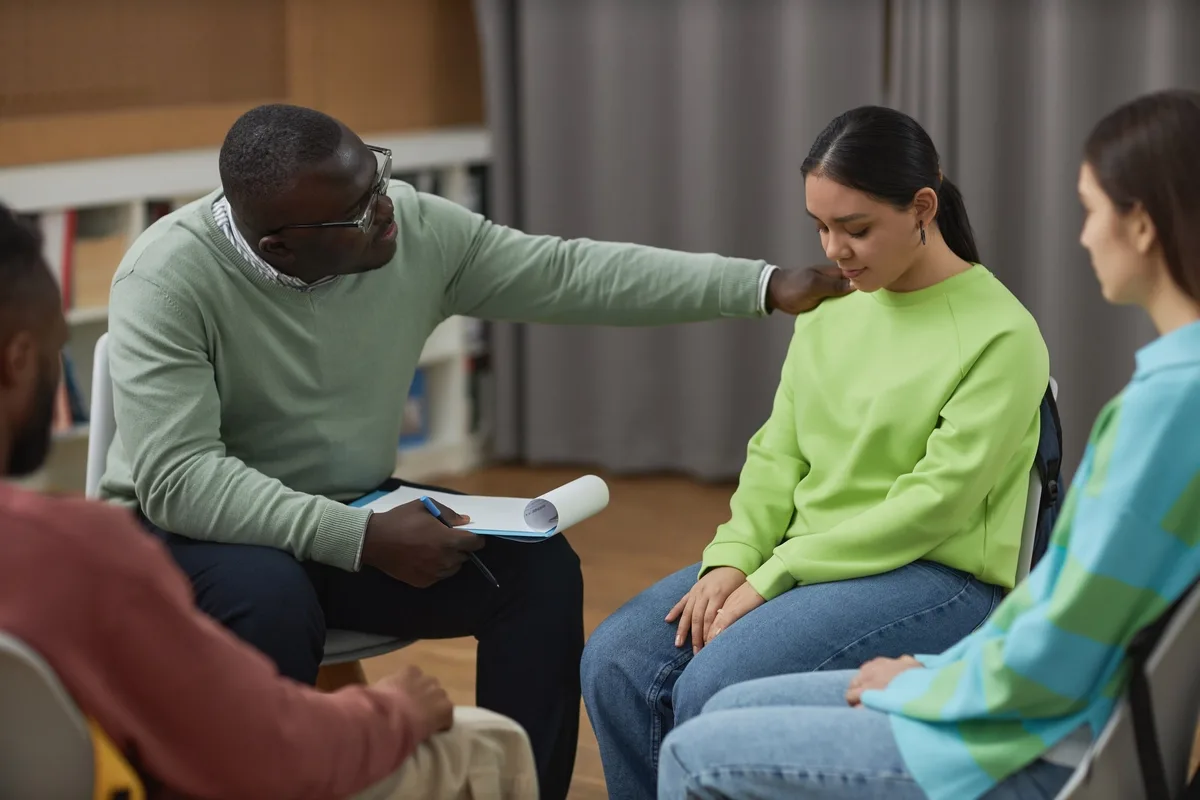24/7 Helpline:
(866) 899-221924/7 Helpline:
(866) 899-2219
Learn more about Depression Treatment centers in Disney

Other Insurance Options

Evernorth

BlueCross

PHCS Network

Amerigroup

Excellus

UMR

EmblemHealth

Carleon

Holman Group

State Farm

Humana

Health Choice

CareSource

Sutter

Medical Mutual of Ohio

Kaiser Permanente

AllWell

BHS | Behavioral Health Systems

Ambetter

Optima










